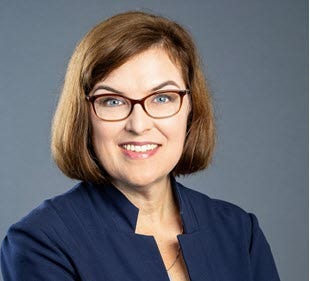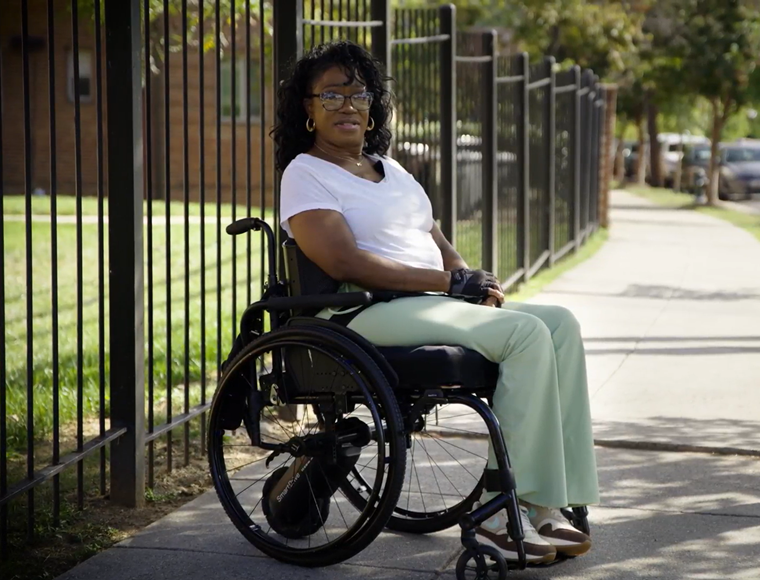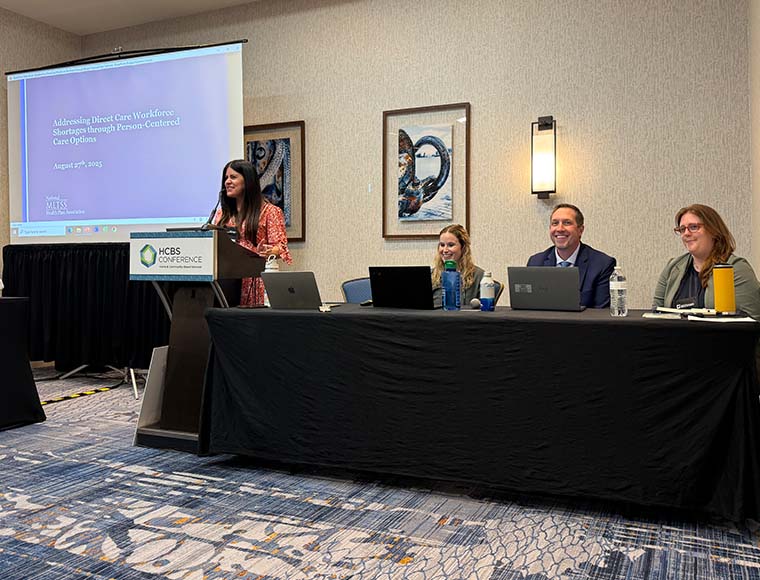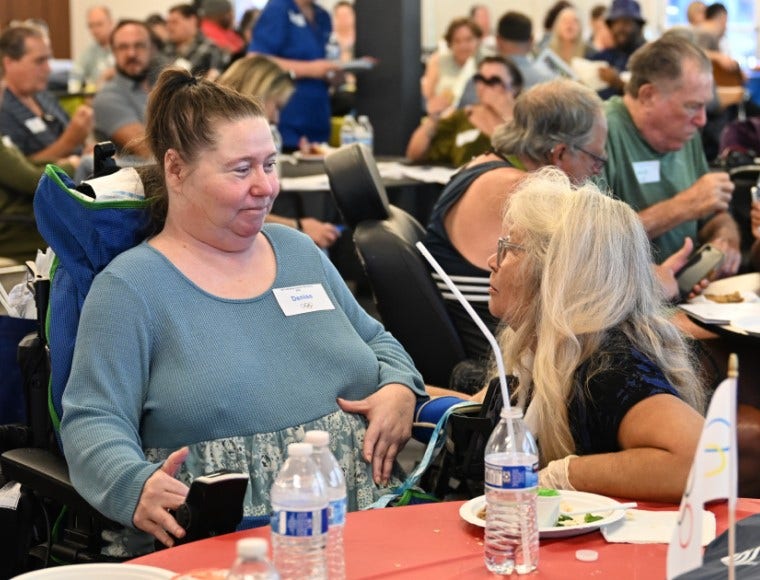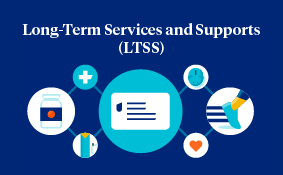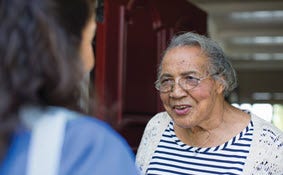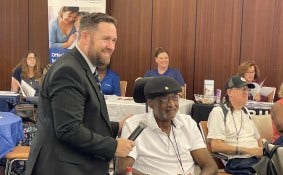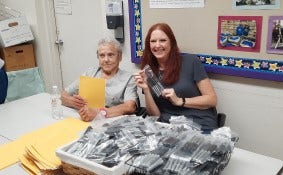Nineteen individuals have been chosen for the Next Gen HCBS Leaders Program. The Next Gen HCBS Leaders Program will offer training, support, and mentoring to selected participants to support their growth as a state HCBS leader. As part of the program, the full group will come together during the ADvancing States 2022 HCBS Conference in Washington, DC. ADvancing States works directly with states to design and implement cost-effective strategies to build and sustain Long-Term Services and Supports (LTSS) and designed the Program in collaboration with their Alumni Leadership Network. UnitedHealthcare is honored to sponsor the inaugural class of the ADvancing States Next Gen HCBS Leaders Program and wishes each participant a fantastic learning experience.
The participants will receive training, support and mentoring through ADvancing States' Alumni Leadership Network. The program will support selected participants’ growth as a state Home- and Community-Based Services (HCBS) leader. The recipients include:
- Danielle Ashlock – Arizona Health Care Cost Containment System
- Amber Kraw – California Department of Aging
- Cassandra Keller – Colorado Department of Health Care Policy and Financing
- Shannon Effler – Indiana Family and Social Services Administration
- Elizabeth Adkins – Louisiana Department of Health
- Mark Cooley – Michigan Department of Human Services
- Darci Buttke – Minnesota Department of Human Services
- Mindy Ulstad – Missouri Department of Health and Senior Services
- Alexis Marthaller – Montana Department of Health and Human Services
- Caroline Coghlan – New Jersey Department of Human Services
- Donald Moffitt – New York State Office for People with Developmental Disabilities
- David Ward – Oklahoma Health Care Authority
- Emily Tumber – Rhode Island Executive Office of Health and Human Services
- Dustin Welch – South Carolina Department of Health and Human Services
- Katie Moss – Tennessee Division of TennCare
- Joy Kearney – Texas Health and Human Services Commission
- Jacqueline Cobbs – Washington Department of Social and Health Services
- Jessica Holland – Wisconsin Department of Health Services
- Elizabeth Forslund – Wyoming Department of Health
Planning for the future HCBS
Due to increasing responsibilities, reduced staff and a wave of retirements, state agencies need support for leaders to continue to provide effective and high-quality HCBS to their citizens. Therefore, this program was developed on the advice of the ADvancing States Board of Directors, members of the MLTSS Institute Advisory Council and former state LTSS leaders who comprise the Alumni Leadership Network.
These programs are for older adults and individuals who require care due to physical, cognitive, developmental or medical conditions that restrict their ability to care for themselves. Currently, Medicaid is the nation’s largest payer of LTSS.
States provide LTSS through either a managed care or a fee-for-service model. States also have the flexibility within Medicaid to design their LTSS delivery system to best meet the needs of their population. This is commonly achieved through 1915(c) HCBS waivers.
By 2050, the number of individuals 85 or older will more than triple what it is today, causing the number of seniors needing LTSS to rise to an estimated 15 million. At the same time, the number of individuals younger than 65 will increase by only 12 percent. This will reduce the availability of family caregivers. By 2030, there is projected to be a national shortage of 3.8 million unpaid family caregivers and 151,000 paid care workers. By 2040, the shortfall is expected to grow to 11 million family caregivers and 355,000 paid workers.
Identifying and training the next generation of HCBS leaders is important because this work is complex and can be challenging even for the most seasoned professionals. The skills and knowledge necessary to operate an HCBS program make the combination of mentorship from current and former HCBS leaders and exposure to national policies and practices invaluable.
Operating an efficient and effective LTSS program requires thoughtful program design, capable health plan partners, strong state oversight and appropriate accountability mechanisms. However, these factors vary from state to state. Arranging peer-to-peer connection and mentoring relationships through the Next Gen HCBS Leaders program furthers information exchange among states and can strengthen LTSS/MLTSS.
2022 ADvancing States home and community-based services conference
ADvancing States’ national conference convenes policymakers who administer, manage and deliver waiver and other HCBS programs with those who share an interest in improving state systems that deliver LTSS. Each member of the Next Gen HCBS Leaders Program will receive an all-expenses-paid scholarship to the 2022 HCBS Conference which is funded by UnitedHealthcare’s $100,000 contribution.
“We are thrilled to partner with UnitedHealthcare and grateful for their support of this important initiative. Their generous sponsorship will provide invaluable education and support for our future HCBS leaders,” said Martha Roherty, Executive Director of ADvancing States.
This conference provides an extraordinary opportunity to share innovative practices and policies. It is the only conference for state agencies that focuses solely on improving state systems that deliver LTSS for all ages and abilities.
Learn more about the Advancing States’ Home and Community-Based Services Conference.
